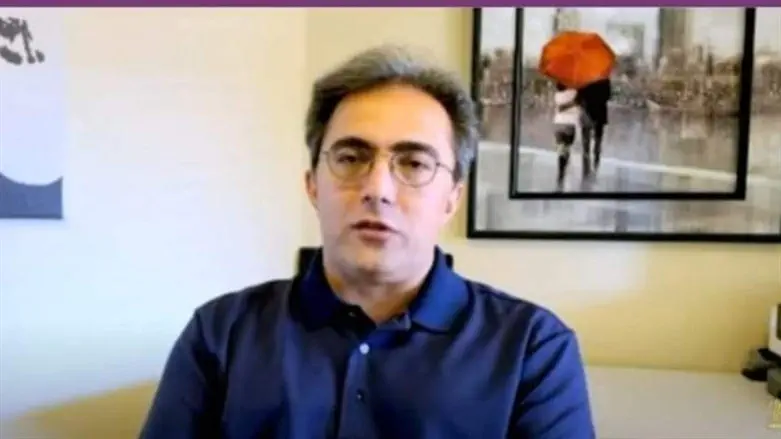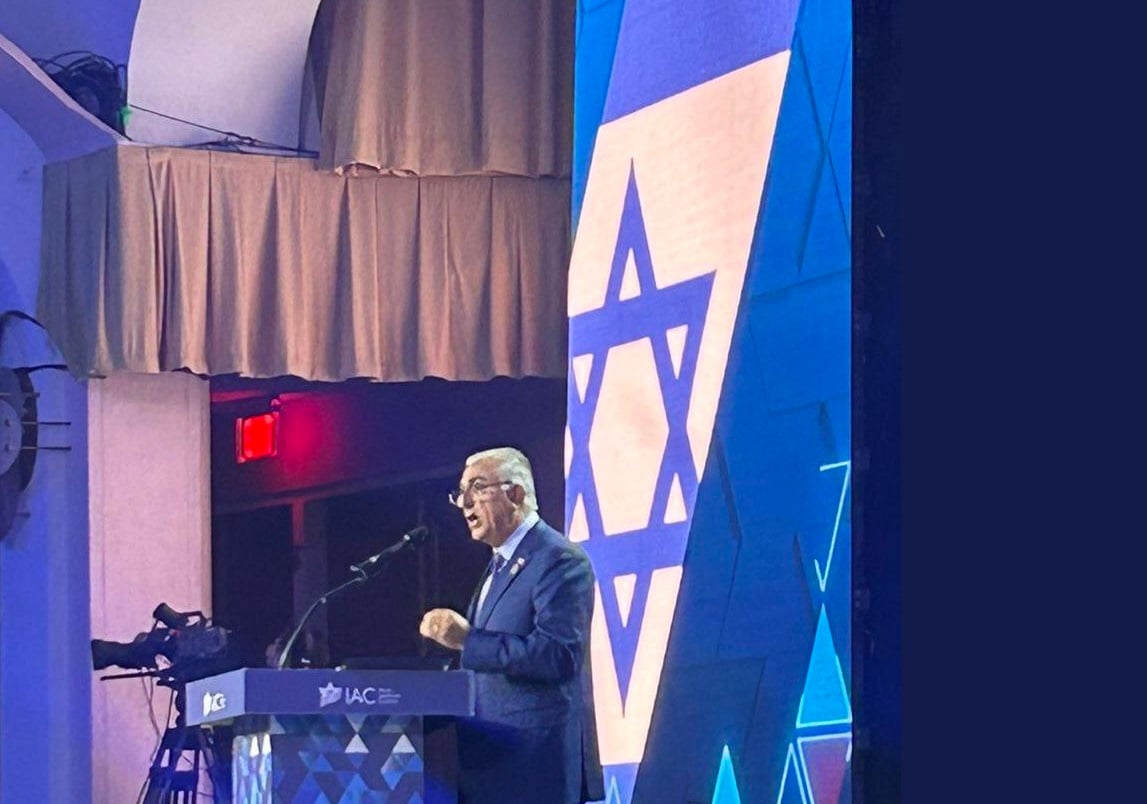
Erfan Fard is a counter-terrorism analyst and Middle East Studies researcher based in Washington, D.C.
Crown Prince Reza Pahlavi’s speech at the IAC conference was highly anticipated and received overwhelming support from both Iranian and Israeli communities. Before his address, supporters waved massive Iranian and Israeli flags outside the venue, showcasing the deep solidarity between these nations in their shared struggle against the common threats posed at them by the Islamic Republic.
This enthusiastic public display underscores Pahlavi’s continued prominence as the most influential political figure among Iranians, particularly admired by the younger generation.
Crown Prince Reza Pahlavi stands as a beacon of hope for millions, representing Iran’s rich history and its potential for a brighter, more democratic future. Despite continuous opposition from the remnants of the 1979 revolution—whose criticisms are often driven by bitterness rather than rational discourse—Pahlavi’s reputation only strengthens.

Marxists, separatists, and so-called reformists frequently align their rhetoric with the Islamic Republic’s propaganda machine, flooding Persian-language social media with negative portrayals. Yet, despite these efforts, Pahlavi’s name shines ever brighter, while his detractors remain irrelevant—mere champions of their own delusions, disconnected from the realities facing the Iranian people.
Against this backdrop of attacks and challenges, Reza Pahlavi’s speech at the Israeli-American Council was more than a recounting of past atrocities. It was a clarion call for decisive global action against the Islamic Republic, focusing on its support for terrorism and systemic violence.
A Call for Coordinated Action
HRH Prince Pahlavi made it abundantly clear that mere solidarity between the people of Iran, Israel, and the United States is no longer enough. He urged that the time has come for coordinated action to overthrow the Islamic Republic: “Now it is time to do more than stand side by side... it is time to act hand in hand” (Pahlavi, speech). This collaboration, he argues, is the only way to free the region from the regime’s terror.
A Legacy of Terror
Pahlavi’s speech meticulously detailed the atrocities committed by the Islamic Republic of criminal mullahs since the 1980s, both inside Iran and globally. He pointed out that “these crimes... were all orchestrated by the Islamic Republic and the man at its bloody helm, Ayatollah Ali Khamenei” (Pahlavi, speech). The regime’s trail of destruction stretches from Lebanon to Buenos Aires, from Iraq to Iran’s own streets, underscoring its unwavering commitment to Islamic terrorism.
The Futility of Reform Efforts
One of the most compelling aspects of Pahlavi’s message was his rejection of any hope for reform within the Islamic Republic. “Iranians tried to deal with this regime. They tried to reform it... but the result was only more violence” (Pahlavi, speech). Even under so-called reformist leadership, the regime continued its brutal repression. Pahlavi’s warning to the West is clear: engaging in negotiations with the regime is futile, as it will never abandon its violent and oppressive nature.
A Red Line Drawn in Blood
The HRH Prince Pahlavi grew emotional when addressing the tragic anniversaries of violent events that claimed innocent lives. He lamented, “Sadly, that red line had to be drawn with the blood of innocent civilians—our Nika and your Shani, our Pouya and your Hersh” (Pahlavi, speech). His words underscore the high cost of inaction and the urgent need for global leaders to stop the regime’s barbaric violence.
The Need for Maximum Pressure
Pahlavi calls for the reinstatement of maximum pressure policies on the Islamic Republic, both politically and economically. He emphasized that this pressure must be coupled with maximum support for the Iranian people, who continue to fight against their oppressors without external help: “We need to reinstate maximum pressure on the Islamic Republic... and provide maximum support to the people of Iran” (Pahlavi, speech). His focus was on encouraging defections from the regime and facilitating a peaceful transition to a secular democracy.
A Vision for the Future
Despite the gravity of the situation, Pahlavi concluded his speech on a hopeful note, envisioning a future where Iran is free from theocratic rule and its people can live in peace: “When the Lion and Sun rises again, the world will witness a new dawn of peace” (Pahlavi, speech). His vision extends beyond solidarity, advocating for a collaborative, coordinated campaign that could expand from the Abraham Accords to a new Cyrus Accords—a partnership aimed at securing prosperity and dignity for both nations.
The Time to Act is Now
The Crown Prince Reza Pahlavi’s speech at the IAC serves as a stark reminder of what is at stake. The atrocities committed by the Islamic Republic are not isolated events; they are part of a long, calculated campaign of terror. Pahlavi’s call for unity and coordinated action is not merely a plea for help; it is a roadmap for achieving lasting peace and security in the region. His message is clear: solidarity is no longer enough. The world must act together to end the Islamic Republic’s reign of terror and pave the way for a brighter future.
In an era clouded by misinformation and propaganda, Pahlavi’s name continues to shine as a beacon of hope for millions of Iranians. His popularity among the youth is a testament to his enduring relevance and the powerful legacy of his family, standing in stark contrast to the fading revolutionaries of 1979 who have lost touch with reality.
Pahlavi’s speech highlighted the need for collaboration between Israel and Iran’s opposition. He stressed that simply reacting to threats posed by Iran’s proxies, such as Hamas and Hezbollah, leaves Israel vulnerable. His message was clear: “Now it is time to do more than stand side by side... it is time to act hand in hand” (Pahlavi, speech).
The call for maximum pressure on the regime and support for the Iranian people underscores the urgency of forming a united front to bring peace and stability to the region. His vision for expanding from the Abraham Accords to a potential Cyrus Accords is a powerful testament to his forward-thinking strategy—a partnership that would secure prosperity and dignity for both Iran and Israel.
